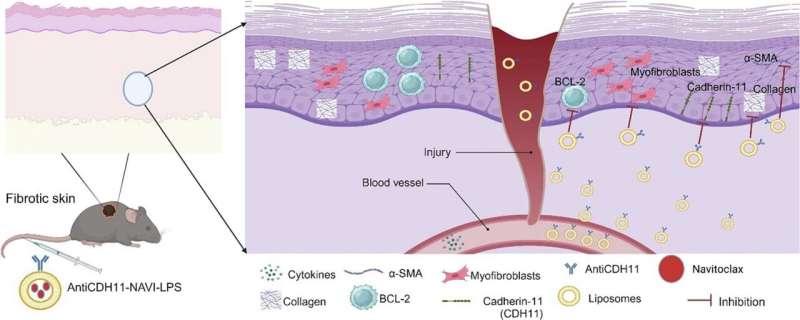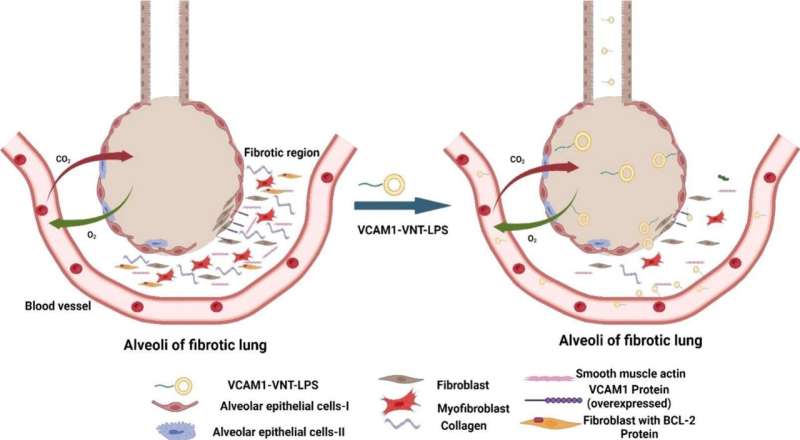This article has been reviewed according to Science X's editorial process and policies. Editors have highlighted the following attributes while ensuring the content's credibility:
fact-checked
peer-reviewed publication
trusted source
proofread
Pharmacy researchers develop nanoparticle treatment for skin and lung fibrosis

Researchers at The University of Texas at El Paso are developing a new therapeutic approach that uses nanoparticles for the treatment of skin and lung fibrosis, conditions that can result in severe damage to the body's tissues.
Md Nurunnabi, Ph.D., is an associate professor in UTEP's School of Pharmacy and the lead researcher on two studies published this June in the Journal of Controlled Release; one study focuses on skin fibrosis and the other on lung fibrosis.
"We are closer than ever to developing a safe, effective and reliable approach to treating fibrosis," Nurunnabi said.
Fibrosis is a condition in which the tissues in an organ—such as the skin, lungs, liver or kidneys—become thicker and stiffer, according to Nurunnabi. This can have multiple damaging effects, such as the lungs not being able to hold enough oxygen or blood vessels becoming narrower, leading to high blood pressure.
"I studied fibrosis during my postdoctoral training but became interested in focusing on it in my lab during the COVID-19 pandemic," Nurunnabi said. "I observed that many people were passing away not because of COVID itself, but because of the inflammation and fibrosis caused by the viral infection in the lungs. Our lab focuses on developing nanotechnology that can target specific cells."

Fibrosis can occur as a side effect of chemotherapy or the result of a viral infection or autoimmune disease, a condition in which the body's immune system attacks its own cells. For example, with an autoimmune condition, the body kills cells called fibroblasts that help form connective tissue. The body then produces more collagen than it needs, which leads to fibrosis.
Nurunnabi's team focused on designing a nanoparticle that could target the cells that are responsible for fibrosis development and progression without disturbing the "good" cells necessary for the body's healthy functioning.
Rather than killing the "bad" cells, the team was successful in modifying them so that they no longer produced excess collagen, in effect rehabilitating the cells. The studies were conducted in the test tube and in mice.

"Dr. Nurunnabi's research into skin and lung fibrosis sheds light on the devastating impact of these conditions, whether acute or chronic," said José Rivera, Pharm.D, founding dean of the School of Pharmacy.
"His findings offer hope for improved treatments that could significantly increase life expectancy and enhance the quality of life for affected individuals."
More information: Rimpy Diwan et al, Cell selective BCL-2 inhibition enabled by lipid nanoparticles alleviates lung fibrosis, Journal of Controlled Release (2024). DOI: 10.1016/j.jconrel.2024.04.055
Himanshu N. Bhatt et al, Cadherin-11 targeted cell-specific liposomes enabled skin fibrosis treatment by inducing apoptosis, Journal of Controlled Release (2024). DOI: 10.1016/j.jconrel.2024.04.029
Journal information: Journal of Controlled Release
Provided by University of Texas at El Paso





















